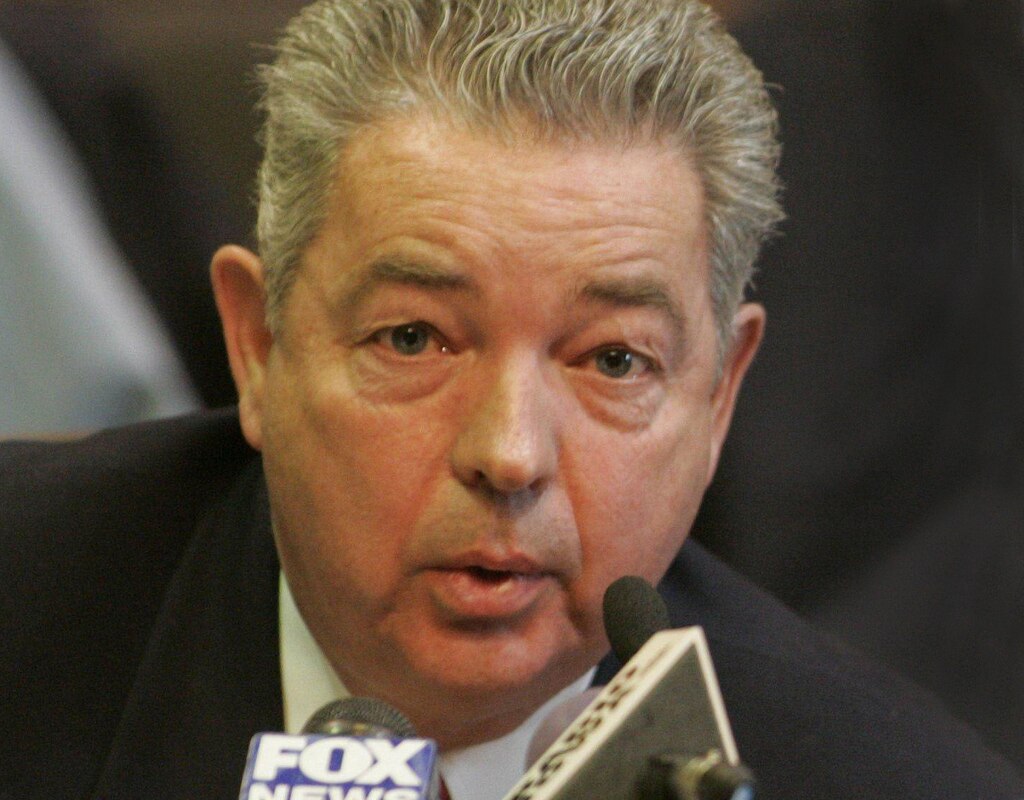CURRENT EDITION: baltimore (none)🔄 Loading BlueConic...EDITION HISTORY: No changes tracked
🔵 BlueConic: ___🔗 Query: ___✏️ Composer: ___
State permit for CSX in South Baltimore would have a catch — barriers to block coal dust
The Maryland State Department of the Environment published a draft permit Thursday morning that would allow CSX Transportation to continue operating its coal terminal in South Baltimore.
Baltimore property tax cut, ‘Baby Bonus’ barred from November ballot
Together, the court’s decisions about the two proposals showcased the limits of Maryland’s ballot initiative process and affirmed the sole power of legislative branches to make specific policy — a hallmark of representative democracies.
Flush with cash from opioid settlements, Scott reveals Baltimore’s overdose playbook
Mayor Brandon Scott laid the groundwork for the city to begin spending money, with designs on slowing the death toll in a city where in recent years an average of three people have died from overdoses every day.
Warren Branch, former inspector who represented East Baltimore on City Council, dies at 63
Warren M. Branch, a former city inspector who represented East Baltimore on City Council from 2007 to 2016, died last week at age 63.
Fire unions backed the mayor’s reelection. Now he wants to boost their pension.
Mayor Scott's plan to expand benefits for police and firefighters comes as a hole in the pension fund has widened, falling $1.2 billion short of what’s needed to meet the needs of its future retirees.
Baltimore reaches 3rd settlement in opioid lawsuit, bringing total to $243M
Ohio-based pharmaceutical company Cardinal Health has been the third-largest distributor of opioids in Baltimore, according to the mayor’s office
Hopkins officials to advise Mayor Scott as Baltimore seeks new health commissioner
Dr. Joshua Sharfstein and Michelle Spencer, both with the Johns Hopkins Bloomberg School of Public Health, will advise the Scott administration in a part-time capacity, effective immediately, while retaining their roles at the university.
City Council to hold hearing probing heat-related death of DPW worker
The hearing, scheduled for Aug. 22, comes as the Department of Public Works is facing new scrutiny over the conditions of its workplace.
Family of DPW worker who died of heatstroke says it was ‘completely preventable’
After a Baltimore sanitation worker died on the job from overheating 10 days ago, his family spoke publicly for the first time Monday.
Judge blocks measure to slash Baltimore’s property tax from November ballot
Backers of the Renew Baltimore measure said they plan to appeal the ruling to the Maryland high court.
Baltimore reaches second opioid settlement with CVS on the eve of trial
The settlement brings the city’s total recoveries to $90 million.
As opioid deaths plague Baltimore, the city’s strategy is silence
Mayor Brandon Scott’s administration has opted to remain silent on the city’s response to overdose deaths as it navigates litigation with opioid makers and distributors.
Harborplace’s Bramble to get $16M from city for ‘Murder Mall’ redevelopment
What was once known as “Murder Mall” will now become headquarters for a city office, with Mayor Brandon Scott’s administration ready to award $16 million to developer and campaign supporter P. David Bramble.
Housing dream or budget nightmare? Inside Mayor Scott’s $3B plan to fix Baltimore’s vacants
So far the reception from state leaders has been lukewarm and city budget officials have also pushed back, according to emails and other communications obtained in a public records request.
Fired health commissioner may have violated Baltimore’s ethics laws
City code makes clear that employees are prohibited from working for or receiving payment from organizations that have contracts with their agency, as Chase Brexton does with the health department.
Fired Baltimore health commissioner under criminal investigation
Dr. Emenuga is the subject of a criminal investigation that focuses, at least in part, on work she did at a health care provider while also serving as Baltimore’s health commissioner.
Baltimore health commissioner fired after 7 months on the job
Before her promotion to commissioner, Dr. Ihuoma Emenuga worked as the health department’s Youth Wellness and Community Health Division, where she oversaw clinical services in schools.
Effort to block Harborplace redevelopment misses deadline to make November ballot
The anti-Harborplace redevelopment coalition, organized by attorney Thiru Vignarajah, faced a 4:30 deadline Monday to submit 10,000 signatures to Baltimore elections officials.
Group seeking to cut Baltimore property taxes hires David Smith’s attorneys
Renew Baltimore recently hired attorneys from the Thomas & Libowitz firm to sue after the city’s election board director rejected their petition to put the tax cut on the November ballot.
Baltimore leaders pass on chance to negate ballot measure on City Council size
The proposal would reduce the council to eight members from 14, plus a president elected citywide. City attorneys have made clear that if two successful charter amendments are completely contradictory, both will be thrown out.










